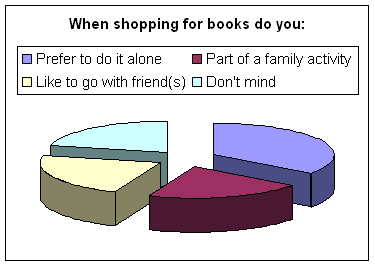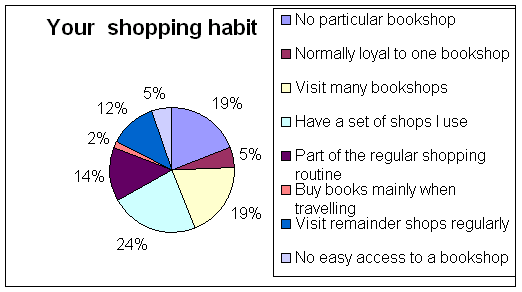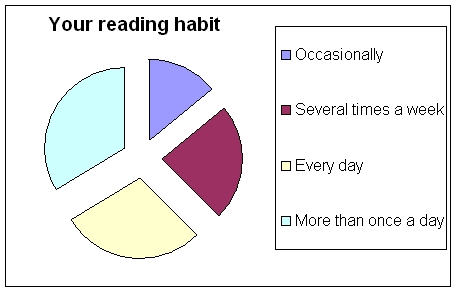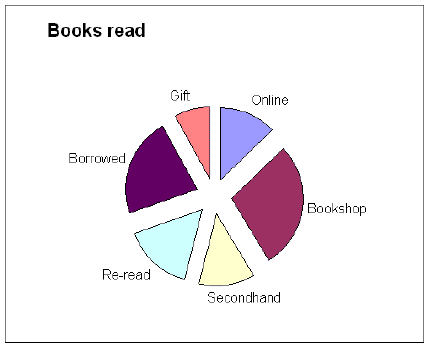Book shopping habits
Magazine
The next question forced you to choose one option. We wanted to know where you shopped. You like to shop around. Just over half of you will wait for for the paperback version of a new title to appear before buying it, but that means that almost half of you are willing to pay the premium for the hardback. However, it appears that you do take careful note of the price you are being asked for a book. A significant group (22%) said they had no fixed rule about the price they were willing to play. However, in other questions it is clear that you are price-aware and 'value for money' is an issue in your purchase decisions.
We wanted to compare the factors which made you pick and then buy a book. You were asked to rank the various issues so the figures take a little interpreting and can't be set out in a simple chart. These are the impressions you gave:
So anybody planning a marketing campaign should hedge their bets. Being able to present a book as a prize-winner influences some buyers, but others take more note of cover endorsements or comment in the media. Comparing browse-v-purchase decision, the location in the shop could triple the browsing probability and people preferred tables to shelves. But when it came to purchase, price and special offers emerged as a key issue. But none of the factors displaced the author as the most important factor in any purchase decision. But, there were two clear sub-sets for whom the cover blurb and the author were the key issues, and a smaller group who bought their books by the pound, where price was the key to any purchase decision.
Using the Internet was very popular indeed as a way of buying books. The search facility and the comments by others were welcomed by most users. A handful said they used it for their book research but still bought books from shops. However, this group was outnumbered by people who enjoyed browsing online so much that they found it 'addictive'. Online book buying has a strong age profile, falling in the 35-50 age group.
The respondents were, as usual for WritersServices, 60% female and split between Europe and North America. There are some annoying spammers that can auto-fill forms such as this survey. Nearly 100 surveys were eliminated as it was impossible to verify that they were completed by people and not machines. We will guard against this in the future by asking you to make a comment. If the spam is a marketing message about ring- tones we can filter these out. The survey was conducted from Feb-June 2006. ©Chas Jones 2006 |




